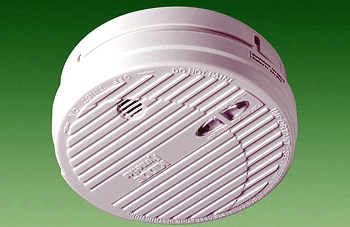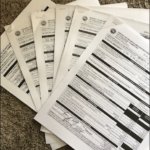 10/05/10 Recent data from the National Fire Protection Association (NFPA) indicates that many homes have smoke alarms that either aren’t working or aren’t properly maintained. The most commonly cited maintenance issues were missing, disconnected or dead batteries.
10/05/10 Recent data from the National Fire Protection Association (NFPA) indicates that many homes have smoke alarms that either aren’t working or aren’t properly maintained. The most commonly cited maintenance issues were missing, disconnected or dead batteries.
“Many homes in Indiana have no smoke alarms, too few smoke alarms, alarms that are too old, or alarms that are not working,” says Indiana State Fire Marshal Jim Greeson. “We want residents to understand that working smoke alarms are needed in every home, on every level, outside each sleeping area and inside each bedroom. If a smoke alarm is 10 years old, it needs to be replaced.”
The Indiana State Fire Marshal’s Office is a division of the Indiana Department of Homeland Security (IDHS).
According to Greeson, smoke alarms can mean the difference between life and death in a fire. NFPA statistics show that working smoke alarms reduce the chance of death in a fire by nearly half. But they must be working properly to do so. Roughly two-thirds of all home fire deaths result from fires in homes with no smoke alarms or no working smoke alarms.
In an effort to better educate communities throughout Indiana about smoke alarm recommendations, the Indiana State Fire Marshal’s Office, is promoting “Smoke Alarms: A Sound You Can Live With!” as the theme for this year’s Fire Prevention Week campaign, October 3-9.
“Most people have a sense of complacency about smoke alarms because they already have one in their homes. Fire Prevention Week provides an excellent opportunity to re-educate people about smoke alarms, new technology and expanded options for installation and maintenance,” says Greeson. “Ultimately, we want this year’s campaign to serve as a call to action for households statewide to ensure that every family has the full level of recommended smoke alarm protection.”
The Indiana State Fire Marshal’s Office offers the following tips for making sure smoke alarms are maintained and working properly:
• Test smoke alarms at least once a month using the test button, and make sure everyone in your home knows their sound.
• If an alarm “chirps,” warning the battery is low, replace the battery right away.
• Replace all smoke alarms, including alarms that use 10-year batteries and hard-wired alarms, when they’re 10 years old (or sooner) if they do not respond properly when tested.
• Never remove or disable a smoke alarm.
• Replace your batteries at least twice a year. A good time to do this is when you change your clocks.
• Interconnected smoke alarms offer the best protection;
when one sounds, they all do. This is particularly important in larger or multi-story homes, where the sound from distant smoke alarms may not be loud enough to provide proper warning, especially for sleeping individuals.
To find out more about Fire Prevention Week programs and activities in your community, please contact your local fire department.
To learn more about fire safety, go to www.in.gov/dhs/getprepared. To learn more about “Smoke Alarms: A Sound You Can Live With!”, visit NFPA’s Web site at www.firepreventionweek.org.














